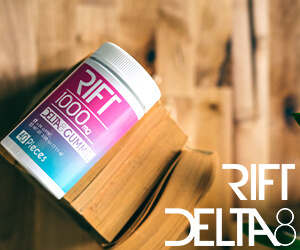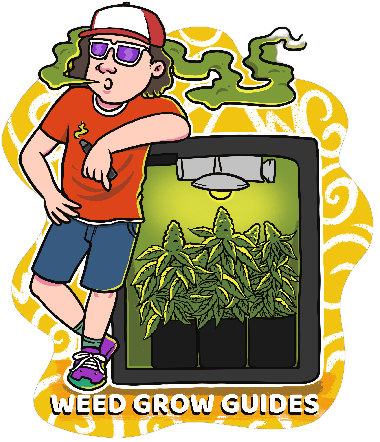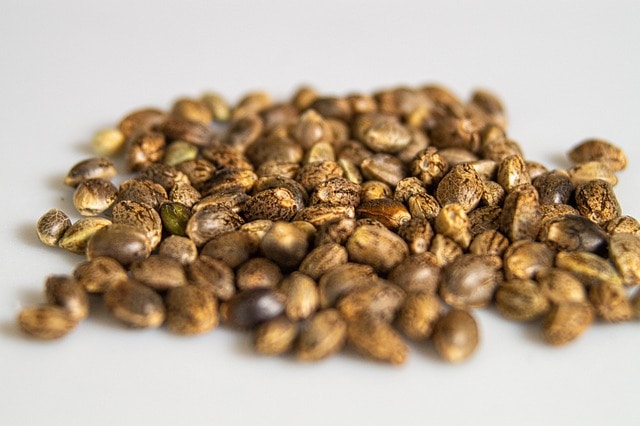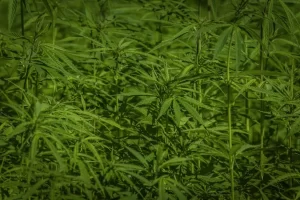Delta-8 THC Also Known as Delta-8-tetrahydrocannabinol
Delta-8 is a naturally occurring chemical compound called a cannabinoid that’s found in small traces in hemp and cannabis (marijuana) plants. Its popularity is on the rise, and you can find it everywhere from boutique weed dispensaries to convenience store shelves you can even buy it online.

Delta-8 THC is one of over 100 cannabinoids produced naturally by the cannabis plant but is not found in significant amounts in the cannabis plant.
It is important for consumers to be aware that delta-8 THC products have not been evaluated or approved by the FDA for safe use in any context. They may be marketed in ways that put the public health at risk and should especially be kept out of reach of children and pets.
Is Delta-8 Legal
Another reason for Delta-8’s growing popularity is that, unlike heavily regulated THC, Delta-8 is legal to use in most states. That’s because it’s extracted mostly from hemp-derived CBD, which is legal to farm across the U.S. But Delta-8 sits in a legal gray area.
Hemp advocates and others who sell it have used this loophole to legally market Delta-8 products, usually with no age restrictions. As a result, it’s now the fastest-growing product in the hemp industry.
Products labeled as Delta-8 may contain impurities, including high levels of THC. As a result, around a dozen states, including New York and Colorado, are beginning to restrict or ban the use of Delta-8.
Delta-8 THC products have not been approved by the fDA for safe use
The FDA is aware of the growing concerns surrounding delta-8 THC products currently being sold online and in stores.
These products have not been evaluated or approved by the FDA for safe use in any context. Some concerns include variability in product formulations and product labeling, other cannabinoid and terpene content, and variable delta-8 THC concentrations.
Additionally, some of these products may be labeled simply as hemp products, which may mislead consumers who associate hemp with non-psychoactive.
The FDA is concerned by the proliferation of products that contain delta-8 THC and are marketed for therapeutic or medical uses, although they have not been approved by the FDA.
Selling unapproved products with unsubstantiated therapeutic claims is not only a violation of federal law but also can put consumers at risk, as these products have not been proven to be safe or effective.
This deceptive marketing of unproven treatments raises significant public health concerns because patients and other consumers may use them instead of approved therapies to treat serious and even fatal diseases.
Where Can You Get It?
You can buy Delta-8 products over the counter at gas stations, convenience stores, weed, and vape shops, and online. They’re sold as gummies, candies, vaping pens, oils, tinctures, edibles, joints, or beverages. You can find products like Delta-8 online at Pinnacle Hemp or Melee Dose

What are the potential benefits of delta-8?
Like delta-9 THC, delta-8 produces feelings of euphoria, relaxation, and potential pain relief, but they’re a lot milder.
For people who don’t want to experience a pronounced “high,” the lower potency may be a benefit.
Unfortunately, researchers still don’t know enough about delta-8 THC to confirm that the benefits outweigh the risks. Experts have a much better understanding of delta-9 THC.
The FDA has received adverse event reports involving delta-8 THC-containing products.
The FDA received 104 reports of adverse events in patients who consumed delta-8 THC products between December 1, 2020, and February 28, 2022. Of these 104 adverse event reports:
- 55% required intervention (e.g., evaluation by emergency medical services) or hospital admission.
- 77% involved adults, 8% involved pediatric patients less than 18 years of age, and 15% did not report age.
- 66% described adverse events after ingestion of delta-8 THC-containing food products (e.g., brownies, gummies).
- 70% required health care facility evaluation, of which 8% resulted in admission to a critical care unit; 45% of patients requiring health care facility evaluation were pediatric patients.
- Adverse events included but were not limited to: hallucinations, vomiting, tremor, anxiety, dizziness, confusion, and loss of consciousness.
- 40% involved unintentional exposure to delta-8 THC and 82% of these unintentional exposures affected pediatric patients.
Will You Test Positive for THC?
It depends. Delta-8 is a form of THC. Drug tests often look for traces of Delta-9, but Delta-8 could show up as a positive for THC. Whether it’s Delta-8 or Delta-9, people also react differently to cannabinoids depending on the type of products they use and how long they use them for.
Currently, commercial urine drug tests don’t differentiate between different cannabinoids. So if you have a drug test coming up, it’s best to avoid Delta-8 products.
Delta-8 THC has psychoactive and intoxicating effects
Delta-8 THC has psychoactive and intoxicating effects, similar to delta-9 THC (i.e., the component responsible for the “high” people may experience from using cannabis).
The FDA is aware of media reports of delta-8 THC products getting consumers “high.” The FDA is also concerned that delta-8 THC products likely expose consumers to much higher levels of the substance than are naturally occurring in hemp cannabis raw extracts.
Thus, the historical use of cannabis cannot be relied upon in establishing a level of safety for these products in humans.
Delta-8 vs. delta-9 vs. CBD
| Potential benefits | Potential risks & side effects | Impairing effects? | Legality | |
| Delta-8 | • pain relief • euphoria • relaxation | • red eyes • dry mouth • rapid heart rate • trouble with coordination • slowed reaction times • anxiety • memory loss • other unknown risks due to synthetic nature | Yes | • not federally legal • state laws vary |
| Delta-9 | • pain relief • euphoria • relaxation | • red eyes • dry mouth • rapid heart rate • trouble with coordination • slowed reaction times • anxiety • memory loss | yes | • not federally legal • state laws vary |
| CBD | • pain relief • anxiety relief • insomnia relief | • changes in appetite • changes in weight • fatigue • diarrhea | no | • federally legal • state laws vary |
How Does It Compare to Regular Marijuana (Delta-9-THC)?
Why is there such a growing demand for Delta-8? Its chemical structure is similar to its well-known cousin, Delta-9-tetrahydrocannabinol (Delta-9-THC), the primary psychoactive compound found in marijuana.
Both Delta-8 and Delta-9 are forms of THC. But when people refer to THC, they usually mean the Delta-9 that’s found in high concentrations in marijuana. Both produce a euphoric, fuzzy feeling, but Delta-8 causes a milder high.
In fact, Delta-8 is often referred to as “marijuana-lite” or “diet weed.” Other common THC side effects like paranoia, anxiety and drowsiness are also less potent.

What are the potential risks of delta-8?
Because delta-8 is so similar to delta-9 THC, it produces some of the same side effects, like:
- Red eyes
- Dry mouth
- Rapid heart rate
- Trouble with coordination
- Slowed reaction times
- Anxiety
- Memory loss
But delta-8 may also have additional risks because it’s something synthetically produced, meaning you might not know what’s really in it.
Manufacturing of delta-8 THC products may occur in uncontrolled or unsanitary settings, which may lead to the presence of unsafe contaminants or other potentially harmful substances.
Effects of Delta 8 THC on Your Nervous System
As we’ve mentioned, Delta 8 THC is a powerful cannabinoid that has the ability to bind with CB1 receptors in your brain which can cause everything from anxiety and paranoia, bloodshot eyes, dry mouth, and a slowed reaction time.
It’s these effects that many people look for to help manage chronic pain or reduce anxiety because they can induce a deep sense of relaxation and calmness throughout your body.
Delta 8 THC may impact your digestive system by making you feel nauseous, bloated, or have a loss of appetite.
You may also experience some minor aches and pain if you don’t eat enough to manage your symptoms so it’s advised that you take Delta 8 with at least a few meals throughout the day.
Clearing the smoke with science
Most of our participants consumed delta-8 THC through concentrates that were either eaten as edibles and tinctures or smoked by vaping methods of ingestion that may be safer than smoking.
About half said they used delta-8 THC to treat health or medical condition, and almost one-third of participants said they exclusively used delta-8 THC to treat a health condition they didn’t use it just for fun.
Common conditions treated were anxiety or panic attacks, chronic pain, depression or bipolar disorder, and stress afflictions that people also treat with delta-9 THC.
Most participants reduced or stopped using pharmaceutical drugs, as well as THC products because they were using delta-8 THC to treat their conditions.
They considered delta-8 THC better than pharmaceutical drugs in terms of adverse side effects, addictiveness, withdrawal symptoms, effectiveness, safety, availability, and cost.
However, participants weren’t confident that their primary care doctor could integrate medical cannabis into their course of treatment. For this reason, many hadn’t disclosed their use of delta-8 THC as a substitute for pharmaceutical drugs to their doctors.

Why is the FDA notifying the public about delta-8 THC?
A combination of factors has led the FDA to provide consumers with this information. These factors include:
- An uptick in adverse event reports to the FDA and the nation’s poison control centers.
- Concerns regarding contamination due to methods of manufacturing that may in some cases be used to produce marketed delta-8 THC products.
- Marketing, including online marketing of products, that is appealing to children.
The FDA is actively working with federal and state partners to further address the concerns related to these products and monitoring the market for product complaints, adverse events, and other emerging cannabis-derived products of potential concern.
The FDA will warn consumers about public health and safety issues and take action, when necessary when FDA-regulated products violate the law.
Is It Safe?
There’s also a lack of research and evidence when it comes to Delta-8’s impact on your overall health.
Many people have reported mostly via social media posts that they use Delta-8 along with their prescription medications to help with depression and substance use. Users say Delta-8 can also:
- Calm nausea
- Boost appetite
- Ease pain relief
- Boost mental health
- Prevent vomiting during cancer treatments
However, experts say these benefits are mostly word of mouth and there’s a lack of research on how it affects your health. Just because you can buy it off the shelves doesn’t mean it’s completely risk-free.
Some people have reported side effects like:
- Confusion
- Anxiety
- Drowsiness
- Slow heart rate (bradycardia)
- Numbness
- Fast heart rate (tachycardia)
- Low blood pressure (hypotension)
If you try Delta-8 products and notice any of these reactions, tell your doctor immediately. If a child eats or is exposed to Delta-8 products, like gummies or candies, get immediate medical care.
Delta 8 THC Treatment and Research
Delta 8 THC provides relief from pain, inflammation, and anxiety without causing too many side effects.
Delta 8 THC is an effective treatment for reducing nausea, slowing down tumor growth, and managing your pain which is why it’s quickly becoming one of the most popular cannabis compounds.
However, you need to understand what to expect when taking this potent cannabinoid so that you can manage your symptoms properly without experiencing any adverse effects.
Delta 8 THC has the ability to reduce nausea while increasing your appetite, reduce pain-inducing inflammation, and slow down tumor growth which is three benefits that can be life-changing.
If you’re interested in using Delta 8 to manage your chronic symptoms, it’s important to speak with a doctor about the right dosage while reducing any side effects.
Delta 8 THC is considered safe because, by itself, it doesn’t impact your immune system which means you won’t experience munchies, dry mouth, or bloodshot eyes, at least when taking lower doses.
However, when taken in higher doses than recommended, then these side effects can occur.
Why is delta-8 legal?
It’s a common misconception that delta-8 is legal. In actuality, some states specifically prohibit it. It also isn’t necessarily federally legal, as it’s synthetically produced and not well regulated.
Should you decide you want to enjoy CBD or regular marijuana than make sure to check out or easy to follow guide to growing your own home grown weed at home year round.












